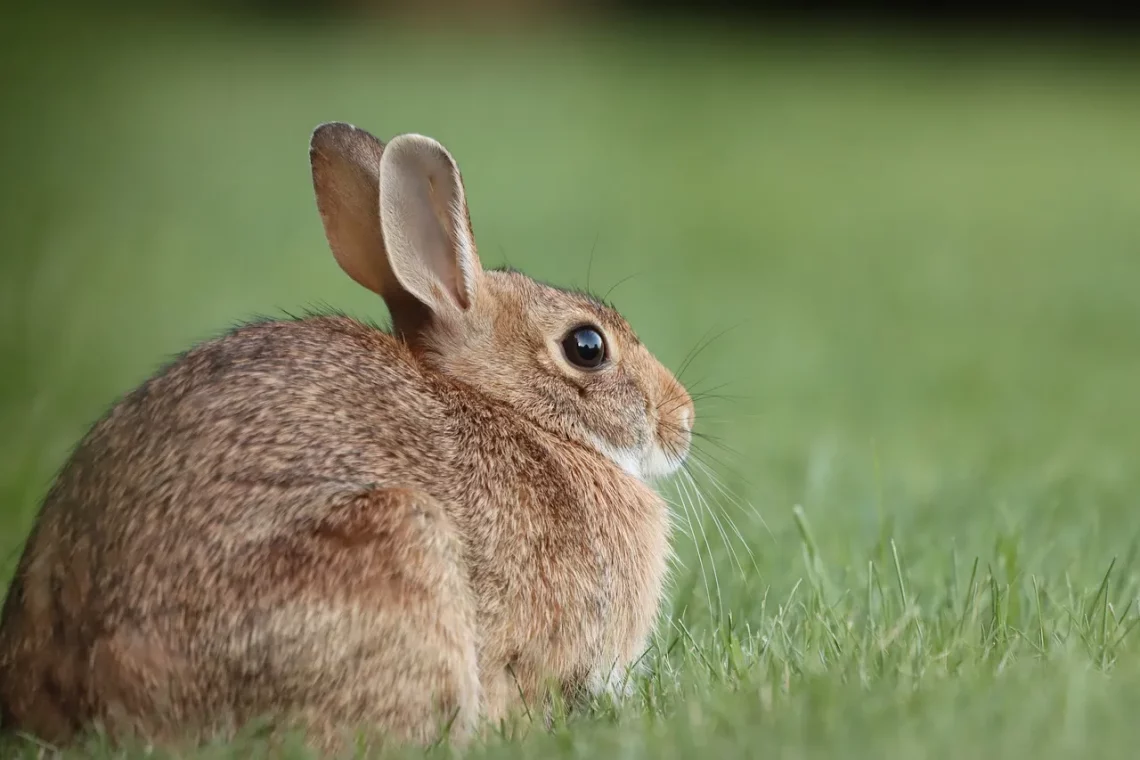
Can a Rabbit Eat Corn? Understanding Your Pet’s Diet Needs
Rabbits are popular pets known for their playful nature and gentle demeanor. As a responsible pet owner, it’s crucial to understand the dietary needs of these delightful creatures. A rabbit’s diet is not only about providing food; it is about ensuring they receive the right nutrients for optimal health. A well-balanced diet contributes significantly to their well-being and longevity.
One of the most common questions among new rabbit owners is whether certain foods, like corn, are safe for their furry friends. This inquiry opens up a broader discussion about what constitutes a healthy diet for rabbits. While rabbits have specific nutritional requirements that differ from those of other pets, understanding these needs is essential for their care.
In this article, we will explore the complexities of a rabbit’s diet, focusing on fruits, vegetables, and grains, and clarify the role that foods like corn may play. By providing insights into rabbit nutrition, we aim to help pet owners make informed dietary choices for their beloved companions.
Understanding Rabbit Nutrition
Rabbits are herbivores, which means their diet primarily consists of plant-based foods. The foundation of a rabbit’s diet should be high-quality hay, which provides essential fiber necessary for proper digestion and dental health. Hay, particularly timothy, meadow, or orchard grass, should be available at all times.
In addition to hay, fresh vegetables and a limited number of fruits can be included in a rabbit’s diet to provide nutrients and variety. Leafy greens such as romaine lettuce, kale, and cilantro are excellent options. These vegetables are rich in vitamins and minerals, which are vital for your rabbit’s health.
Grains and high-carbohydrate foods, such as corn, should be approached with caution. While they may be appealing to rabbits due to their sweetness, these foods can disrupt the delicate balance of their digestive system. Rabbits have a unique digestive system that relies heavily on fiber. Foods high in starch, like corn, can lead to gastrointestinal issues if consumed in excess.
In summary, a balanced diet for rabbits should focus on hay, fresh vegetables, and occasional fruits while minimizing the intake of grains and high-starch foods. Understanding these dietary needs is crucial for maintaining the health and happiness of your bunny.
The Role of Hay in a Rabbit’s Diet
Hay is the cornerstone of a rabbit’s diet, providing the necessary fiber that helps with digestion and keeps their teeth healthy. Rabbits have continuously growing teeth that require constant wear. Chewing on fibrous hay helps prevent dental problems, which are common in rabbits that do not receive adequate roughage.
Moreover, hay is low in calories and high in fiber, which helps prevent obesity—a growing concern among pet rabbits. Without enough fiber, rabbits are prone to gastrointestinal stasis, a serious condition where the digestive system slows down or stops altogether. This can lead to severe health complications if not addressed promptly.
There are several types of hay available, but not all are created equal. Timothy hay is often recommended for adult rabbits due to its balanced nutritional profile. It is rich in fiber and low in protein and calcium, making it an ideal choice. For younger rabbits or those in need of higher protein and calcium, alfalfa hay can be offered in moderation, as it is richer and more calorie-dense.
When introducing hay into your rabbit’s diet, ensure it is fresh and free from mold or contaminants. Rabbits should have unlimited access to hay at all times, as it forms the basis of their diet and supports their overall health.
Fresh Vegetables: A Vital Component of Rabbit Diet
In addition to hay, fresh vegetables play a crucial role in providing essential nutrients that promote overall health in rabbits. Leafy greens should make up a significant portion of the vegetable intake. Varieties such as romaine lettuce, parsley, basil, and cilantro are excellent choices, as they are low in calories and high in water content, aiding in hydration.
When selecting vegetables, it’s important to introduce them gradually to avoid digestive upset. Start with small amounts and monitor your rabbit’s reaction. Some rabbits may be more sensitive to certain vegetables, so it’s vital to observe their behavior and health after introducing new foods.
Root vegetables, such as carrots, can be given as treats but should not form a significant part of the diet due to their high sugar content. Similarly, starchy vegetables like corn should be limited or avoided altogether. While rabbits may enjoy the taste of corn, it can lead to obesity and digestive problems due to its high starch and low fiber content.
A variety of vegetables will not only provide essential nutrients but also keep mealtime interesting for your rabbit. Always wash vegetables thoroughly to remove pesticides and contaminants before serving. Freshness is key, so avoid wilting or spoiled greens, as these can lead to health issues.
Are Grains Safe for Rabbits?
The question of whether grains, including corn, are safe for rabbits is a common concern among pet owners. While some grains can be included in a rabbit’s diet, they should be offered sparingly and with caution. Rabbits have a sensitive digestive system that is not designed to process high amounts of starch.
Corn, in particular, is high in carbohydrates and can lead to obesity and digestive issues if fed in large quantities. While it is not toxic to rabbits, it does not provide the necessary nutrients that hay and vegetables do. Instead of serving corn as a primary food source, consider offering it as an occasional treat, if at all.
Other grains, such as oats or barley, can be introduced in small amounts, but they should not replace the primary components of a rabbit’s diet. The focus should remain on providing a high-fiber diet, as fiber is essential for maintaining healthy digestive function.
If you are unsure about the right foods for your rabbit, consulting with a veterinarian who specializes in exotic pets can provide valuable guidance. They can help you determine the best dietary plan tailored to your rabbit’s individual needs.
Final Thoughts on Rabbit Diet
In conclusion, understanding what foods are suitable for rabbits is crucial for their health and well-being. While corn may seem appealing as a treat, it is important to prioritize high-fiber hay and fresh vegetables in their diet. A balanced diet will help prevent health issues and ensure your rabbit remains active and happy.
Always monitor your rabbit’s health and behavior when introducing new foods, and consult with a veterinarian if you have any concerns regarding their diet. Remember, each rabbit is unique, and their dietary needs may vary.
This article is not intended as medical advice. For health-related concerns or dietary questions about your rabbit, please consult a qualified veterinarian.




